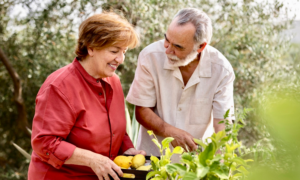However, if you were to sell your parent’s principal residence — say, because you already have a home — the sale would be subject to capital gains tax, since you’re selling a piece of property that is not your primary residence.
Sell the house shortly after you inherit and you’ll find the capital gains tax will be nominal, as there will be little difference between the assessed fair market value that was done when you inherited the property and the sale price.
Multiple owners
Of course, all this gets a lot more complicated when you have multiple owners.
Say, for example, your parents leave their primary residence to you and your two sisters. As siblings, you make a unanimous decision to allow the youngest to move into the home and to take out a mortgage to buy out the other two siblings.
Since the youngest now considers the inherited property as their primary residence, they won’t be subject to tax.
The other two siblings, however, would have to pay capital gains tax once the youngest child has moved into the home. That’s because the change in use of the home triggered what the taxman calls a “deemed disposition”— the use of the home has changed, and thus the home is considered to have been sold for tax purposes.
FMV is the key











Here’s a question. If someone inherits a house from someone who was not a family member but friend. Does this person have to pay any other taxes aside from the welcome taxe? They are not sure to either rent or sell.
What happens in the case of 4 beneficiaries inheriting a farm? If one of the beneficiaries wants to be bought out but no one is in a position to buy that individual out, what transpires?
Due to the large volume of comments we receive, we regret that we are unable to respond directly to each one. We invite you to email your question to [email protected], where it will be considered for a future response by one of our expert columnists. For personal advice, we suggest consulting with your financial institution or a qualified advisor.
My dad had my name on the deed of his home, he passed away and I would like to sell, do I have to pat Capitol gains tax
What if I live with my parent in their house and I have already bought out the other siblings year before? I am the only one inheriting the house in my mothers will. What are my costs?
Hello . I’ve had my fathers house for five years since he passed and now I would like to move in and live there. I renovated the house and repaired many things and it’s doubled in value. I am the sole heir. Will I owe capital gains tax when I move in ? What about when I Decide to sell it ?
Thank you for the question. We invite you to email it to [email protected], where it will be considered for future articles.
can the house be inherited by daughters or son without being sold if we decide to keep the house can we inherited without being tax..the same as a spouce. who pays the taxes if the house is sold after my mom dies.I need to understand as my poor mother is almost ninety
If you are none family and power atternoy inheriting proerty, do you have pay property transfer tax, it’s not clear if power atternoy has rights same as next to kin?
My Step Father passed and left my Mom a prime residence home and farmland .My Mom sold the farmland. She wants to know if she will have to pay capital gains for selling the farmland. Thank you.
We want to add our daughter’s name to our home title. How would that affect her inheritance
tax when we both die?